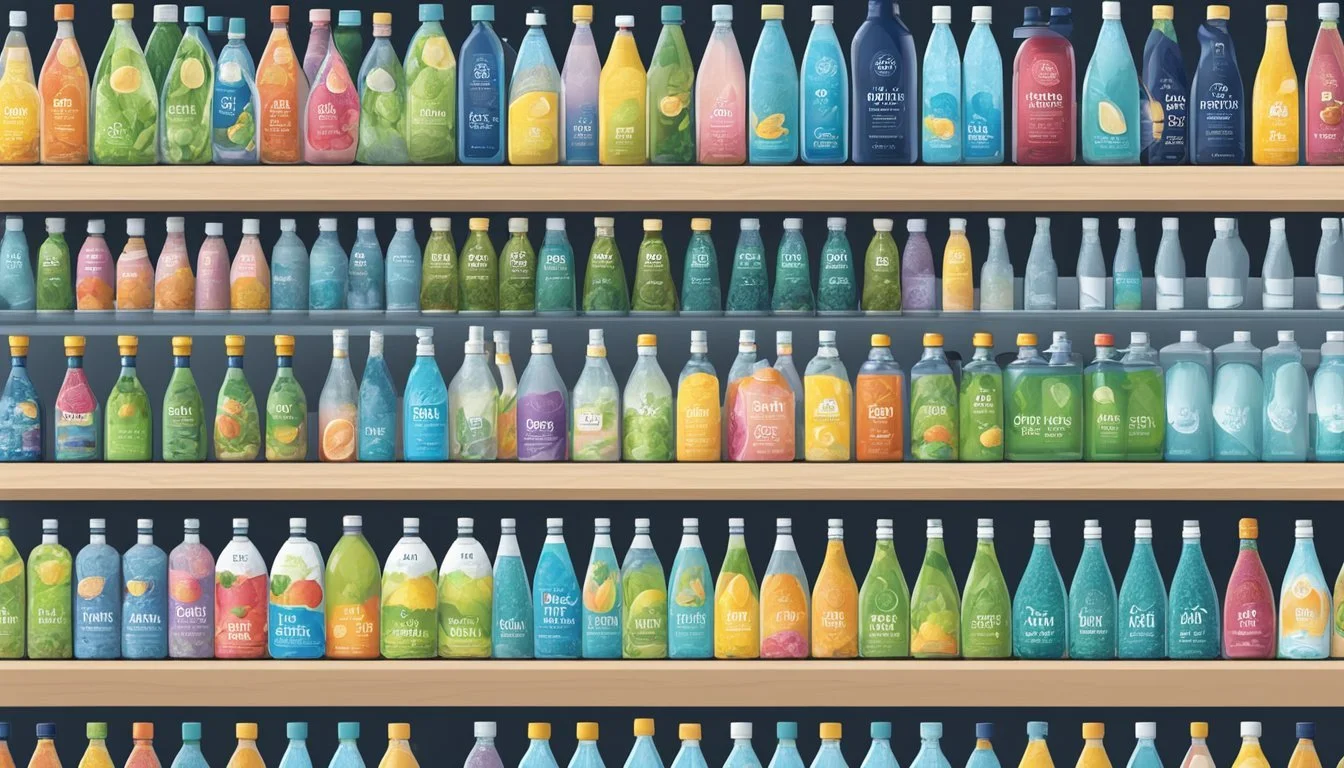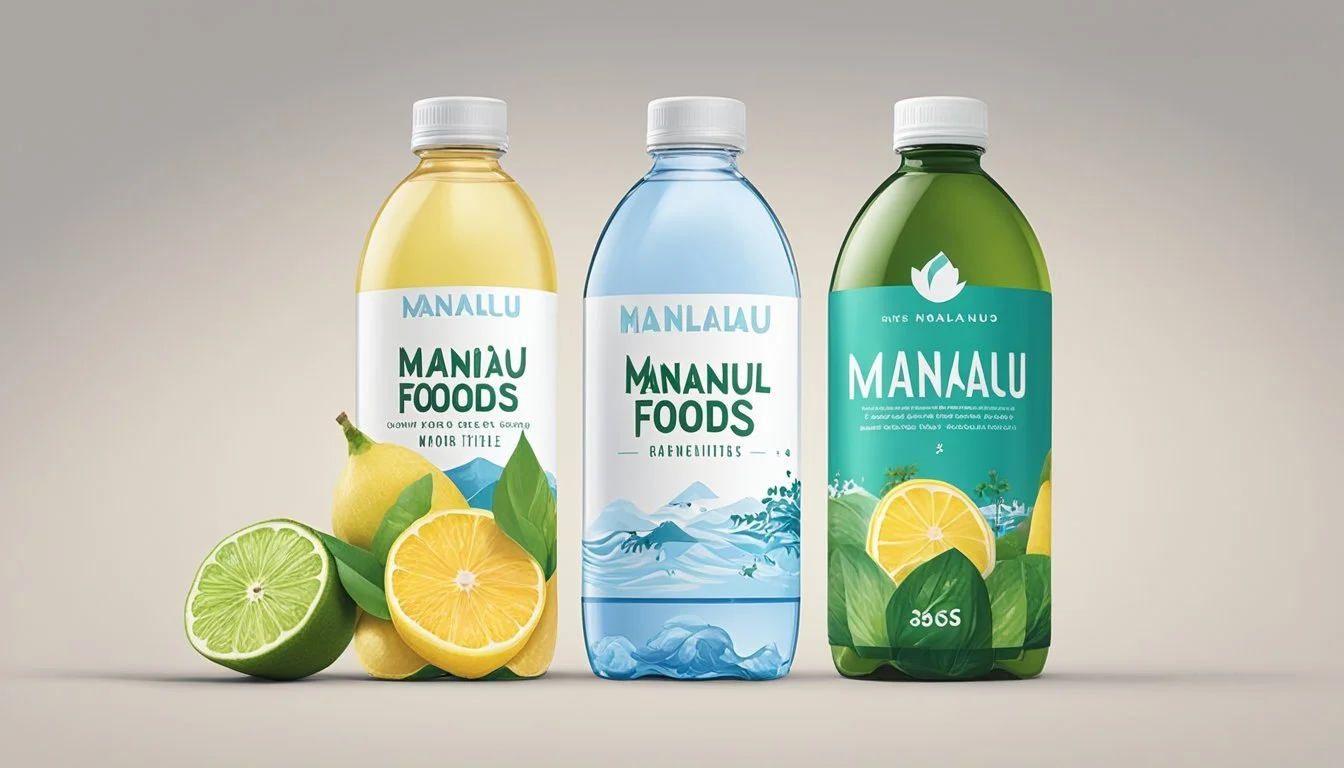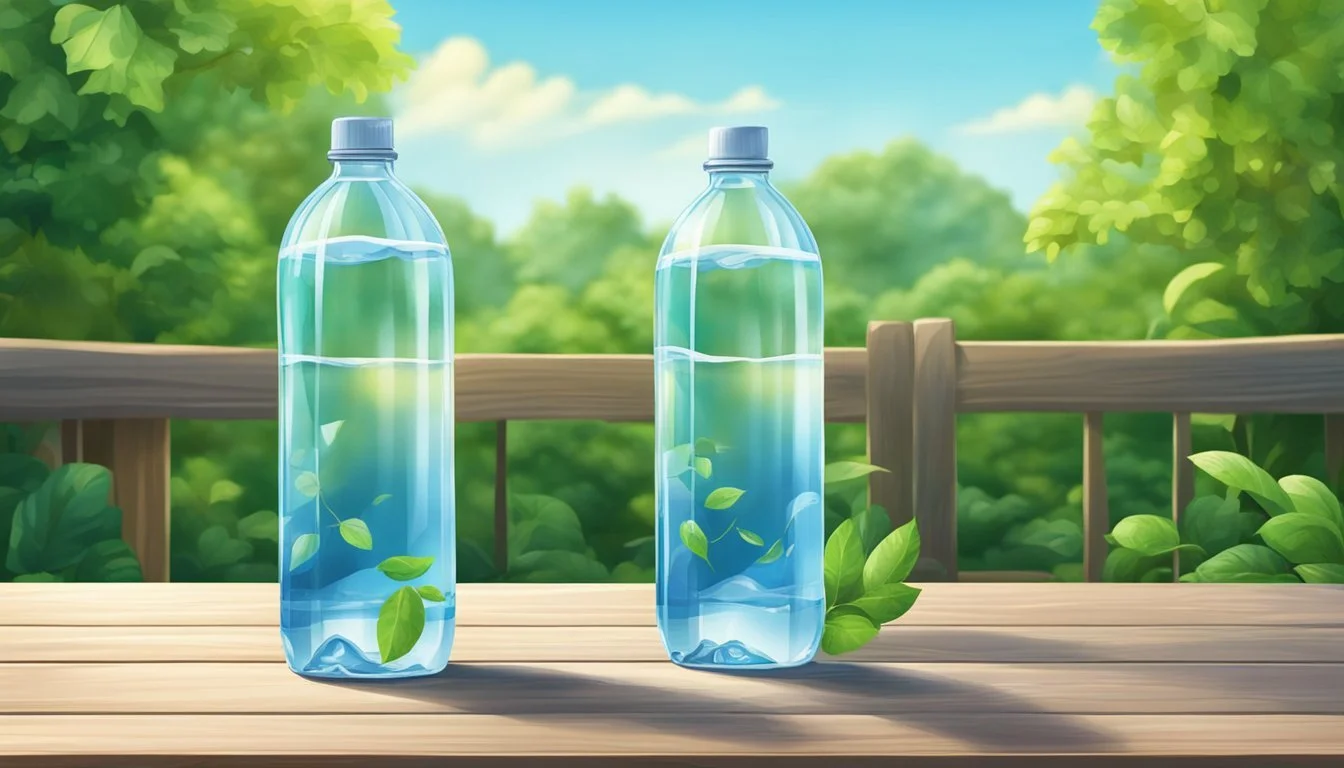Mananalu vs. Whole Foods 365
Best Bottled Water Showdown
When it comes to choosing between Mananalu and Whole Foods 365 bottled water, several factors come into play, including taste, packaging, and environmental impact. Mananalu, founded by actor and activist Jason Momoa, aims to eliminate single-use plastic bottles by packaging their purified water in 100% recyclable aluminum cans. Whole Foods 365, on the other hand, offers a more conventional spring water at a budget-friendly price but does not have the same strong environmental mission.
For environmentally conscious consumers, Mananalu's aluminum packaging makes it a standout choice over Whole Foods 365's plastic bottles. The taste of water can be subjective; however, some reviewers have noted that Whole Foods 365 water has a "sour with a dry aftertaste," making it less appealing to some drinkers. In contrast, Mananalu provides a clean and fresh taste that can be more satisfying.
Sustainability is a critical concern in today's market, and Mananalu's mission-driven approach significantly appeals to those prioritizing eco-friendliness in their hydration choices. By choosing Mananalu, consumers support a brand committed to reducing plastic waste, making it a better option for those looking to make environmentally responsible choices.
Brand Profiles
Mananalu and Whole Foods 365 both emphasize sustainability in their offerings, focusing on environmentally friendly alternatives to traditional bottled water. Each brand has unique characteristics that set it apart in the market.
Mananalu – Mission and Vision
Mananalu, founded by actor and activist Jason Momoa, aims to combat plastic pollution by providing water in 100% recyclable aluminum cans. The brand's mission is to eliminate single-use plastic water bottles, contributing to a significant reduction in environmental footprint.
Momoa's passion for the environment drives Mananalu's initiative. The company actively promotes sustainability and encourages consumers to make more environmentally friendly choices. Mananalu water is sold in various retail locations, online platforms, and grocery chains, enhancing its accessibility and impact.
Whole Foods 365 – Core Values and Quality
Whole Foods 365, a product line from Whole Foods Market, aligns with the retailer's long-standing commitment to natural and organic foods. The 365 bottled water is known for its high quality and adherence to strict sustainable practices.
Whole Foods emphasizes sustainable choices across all its products, including its own brand of bottled water. The company sources and processes its water to maintain high standards of purity, ensuring that the water is not only safe but also refreshing. By offering this product, Whole Foods continues to support a sustainable and health-conscious lifestyle.
Water Quality and Benefits
To compare the water quality and benefits of Mananalu and Whole Foods 365, it's essential to look at their purity, pH levels, health benefits, and hydration properties. This section delves into the specific characteristics that affect consumer wellness and taste preferences.
Assessing Purity and pH Levels
Mananalu offers purified water packaged in 100% recyclable aluminum cans. The purification process typically involves several stages of filtration to eliminate contaminants, resulting in water that is almost completely pure.
Whole Foods 365, classified as spring water, is sourced directly from natural springs. While not as heavily filtered as purified water, spring water contains natural minerals that can enhance its taste.
pH Levels play a significant role in the water's benefits. Mananalu is usually slightly alkaline, ranging around 7.5 pH, making it more neutral. On the other hand, Whole Foods 365 tends to have a variable pH closer to neutral, ranging between 6.5 and 7.5.
Consumers often prefer Mananalu for its focus on purity and environmental consciousness, while Whole Foods 365 appeals to those who appreciate natural minerals and spring water's robust taste.
Hydration and Health Benefits
Proper hydration is crucial for maintaining bodily functions, and both brands offer key benefits in this area. Mananalu's purified water is excellent for those prioritizing electrolyte balance and mineral-free hydration.
Whole Foods 365, with its natural mineral content, can provide additional electrolytes which are essential for muscle function and overall health. The taste of naturally sourced minerals may also appeal to consumer palettes seeking something beyond purified water.
Electrolytes in Whole Foods 365 can aid in rapid rehydration, making it a popular choice for athletes and fitness enthusiasts. Mananalu’s purified water is beneficial for intense hydration needs without adding extra substances, ideal for everyday wellness routines.
Both bottled waters help in meeting daily hydration goals, though they cater to slightly different health preferences and tastes.
Environmental Impacts and Initiatives
Mananalu and Whole Foods 365 both strive to address environmental challenges through their products. Their efforts are focused on reducing single-use plastics and enhancing recycling and repurposing initiatives.
The Battle Against Single-Use Plastics
Mananalu was founded by Jason Momoa with a mission to eliminate single-use plastic water bottles. The company uses infinitely recyclable aluminum cans instead. This is a significant move considering the environmental impact of plastic pollution.
Plastic waste from single-use plastic bottles and plastic bags continues to be a major environmental issue. Whole Foods 365 also emphasizes environmentally friendly practices but primarily focuses on reducing packaging waste through recycled plastics.
Mananalu's “Drink One, Remove One” initiative with Repurpose Global targets removing ocean-bound waste, further emphasizing its commitment to sustainable practices.
Recycling and Repurposing Efforts
Both Mananalu and Whole Foods 365 prioritize recycling and repurposing efforts. Mananalu offers water in 100% recyclable aluminum cans, which can be reused indefinitely without loss of quality.
Whole Foods 365 products often incorporate recycled materials, underscoring their sustainability efforts. Whole Foods Market itself promotes the use of reusable containers and offers recycling programs in many stores.
Mananalu partners with Repurpose Global to go beyond recycling, aiming to collect and repurpose plastic waste. This effort ensures that for every bottle sold, an equivalent of plastic waste is removed from the environment.
It's evident that both brands are making strides in the battle against plastic pollution through innovative recycling and sustainability initiatives.
Product Offerings and Differentiators
Mananalu and Whole Foods 365 offer distinct bottled water experiences that cater to varying consumer preferences, focusing on packaging innovations and unique flavor profiles.
Packaging Innovations
Mananalu stands out with its use of aluminum bottles. These bottles are made of infinitely recyclable aluminum, a sustainable option aimed at reducing plastic waste. The aluminum bottles are resealable, convenient for on-the-go consumption.
In contrast, Whole Foods 365 utilizes traditional plastic bottles. While common in the industry, they lack the eco-friendly characteristics of Mananalu's aluminum packaging. Mananalu's commitment to sustainability arguably offers a competitive edge in today's eco-conscious market, setting it apart from Whole Foods 365.
Flavor Profiles and Ingredients
Mananalu provides purified water with a clean and pure taste, emphasizing its lack of artificial ingredients, added sugars, or sodium. This straightforward purity appeals to consumers looking for a health-conscious option.
Whole Foods 365 offers spring water. According to reviews, it has a sour, dry aftertaste, which may not appeal to everyone. Moreover, it falls into the category of average purified waters. Mananalu's dedication to providing electrolyte-enriched water without artificial additives is another element that consumers might find attractive.
Both brands offer distinct experiences, but their flavor profiles and ingredient transparency serve different needs and preferences.
Market Presence and Accessibility
Mananalu Water, founded by actor Jason Momoa, emphasizes sustainability with its aluminum bottles, while Whole Foods 365 offers affordability in spring water. Understanding their market presence and accessibility provides insight into which brand might better meet consumer needs.
Retail Partnerships and Availability
Mananalu Water has strategically partnered with Whole Foods Market, a leading retailer known for its commitment to high-quality and sustainable products. This partnership enhances Mananalu's visibility and accessibility, making it available nationwide in Whole Foods stores.
Additionally, Mananalu is available in other specialty grocery stores such as Sprouts, expanding its reach across the USA. This wide distribution supports its mission to reduce plastic waste by providing an eco-friendly alternative in prominent retail spaces.
Whole Foods 365 water is primarily available at Whole Foods Market stores. Being the retailer's in-house brand, it enjoys a guaranteed shelf presence in all Whole Foods locations, which are widespread across the USA. However, Whole Foods 365 doesn’t have the same level of availability in other grocery chains, which limits its exposure compared to competitors like Mananalu.
Comparative Cost Analysis
Mananalu Water is positioned as a premium product, which is reflected in its price. The cost is justified by its aluminum packaging and the environmental benefits it promotes. Consumers willing to spend more on sustainability will find Mananalu to be a valuable choice.
In contrast, Whole Foods 365 water offers a more economical option. Priced at approximately 69 cents per bottle, it appeals to budget-conscious consumers. Despite its lower cost, it may not offer the same level of environmental benefit as Mananalu.
Considering both price and value, Mananalu targets eco-conscious consumers, while Whole Foods 365 is more attractive to those looking for an affordable bottled water option.
Consumer Engagement and Brands' Ethos
Mananalu and Whole Foods 365 appeal to different types of consumers by embracing distinct marketing strategies and by adhering to specific ethical values. Each brand champions its community impact through its unique ethos and actions.
Marketing Strategies and Consumer Relations
Mananalu leverages the star power of Jason Momoa, known for his roles in Aquaman and Game of Thrones. His active presence on Instagram and other social media platforms is pivotal in promoting the brand’s mission against single-use plastics. Mananalu's messaging resonates especially with environmentally-conscious consumers.
Whole Foods 365, branded under the Whole Foods Market umbrella, uses its established retail presence to engage customers. The store’s frequent promotions and in-store educational campaigns drive consumer trust and loyalty. Their marketing often emphasizes affordability alongside quality, attracting a broad demographic ranging from budget-conscious shoppers to health enthusiasts.
Both brands engage their communities in meaningful dialogue, but while Mananalu's consumer relations are driven by celebrity endorsement and a clear environmental message, Whole Foods 365 benefits from the trust and familiarity of a well-known retail chain.
Ethical Considerations and Community Impact
Mananalu, founded by Jason Momoa, places a strong focus on sustainability and reducing environmental footprint by encouraging the use of aluminum bottles over single-use plastics. The brand aligns with ethically sourced principles and actively participates in various philanthropic activities that support global water initiatives.
Whole Foods 365, as part of the Whole Foods ethos, emphasizes organic and sustainably sourced products. Their community impact includes supporting local farmers and suppliers, promoting fair trade products, and engaging in numerous eco-friendly initiatives.
Consumers of both brands appreciate the ethical considerations embedded in their business models. Mananalu makes a bold statement with its environmental action, while Whole Foods 365 integrates community support and ethical sourcing throughout its extensive product range.
Comparative Assessment
In comparing Mananalu and Whole Foods 365 bottled waters, key factors such as taste and environmental impact are most relevant to consumers. Each brand offers distinct advantages for taste and environmental sustainability, helping consumers make informed choices.
Taste Test and Water Sommelier Reviews
Water sommeliers often highlight the taste profiles of different bottled waters. Mananalu provides purified water in 100 percent recyclable aluminum cans. This method of packaging may influence the taste, giving it a clean and crisp finish with no plastic aftertaste.
Whole Foods 365 Spring Water, on the other hand, has a slightly sour, dry aftertaste according to reviews. Compared to premium brands like Acqua Panna or Fiji, Whole Foods 365 doesn’t stand out in terms of flavor. Mananalu's pure taste might appeal more to those sensitive to plastic flavors.
Health and Environmental Impact Consideration
Health: Mananalu and Whole Foods 365 both offer reliable hydration, with Mananalu's purified water ensuring the absence of contaminants. Whole Foods 365 offers spring water that may have natural minerals.
Environmental Impact: Mananalu takes a strong stance on combating plastic pollution. Their use of 100 percent recyclable aluminum cans significantly reduces the environmental footprint as compared to plastic bottles. Consumers valuing sustainability might prefer Mananalu for this reason.
Whole Foods 365’s impact is also mitigated by their spring water sourcing and business practices focused on sustainability, but the plastic bottle packaging is less environmentally friendly than Mananalu's aluminum cans. Both brands align with environmental values, but Mananalu may offer a more tangible solution for reducing single-use plastics.
Conclusion
Mananalu has positioned itself as a leader in sustainability by providing bottled water in 100 percent recyclable aluminum cans. This aligns with their mission to eliminate single-use plastic.
Whole Foods 365, while technically a spring water, tends to taste similar to purified waters and has a mixed reception among consumers.
When choosing between these options, consumer choice might hinge on taste preferences as well as commitment to environmental sustainability.
Both waters are available at Whole Foods and other major retailers, making them accessible to a wide audience.
More About Mananalu
Hawaiian Springs vs Mananalu: Which Bottled Water is Better?
Icelandic Glacial vs Mananalu: Which Bottled Water is Better?
Mananalu vs Cascade Mountain: Which Bottled Water is Better?
Mananalu vs Kirkland Signature: Which Bottled Water is Better?
Mananalu vs Richard's Rainwater: Which Bottled Water is Better?
Mananalu vs Talking Rain AQA: Which Bottled Water is Better?
Mananalu vs Whole Foods Italian Still Mineral water: Which Bottled Water is Better?
Mountain Valley Spring Water vs Mananalu: Which Bottled Water is Better?
Nestle Pure Life vs Mananalu: Which Bottled Water is Better?
More About Whole Foods 365
Acqua Pana vs Whole Foods 365: Which Bottled Water is Better?
Alkaline88 vs Whole Foods 365: Which Bottled Water is Better?
Antipodes vs Whole Foods 365: Which Bottled Water is Better?
Aqua Carpatica vs Whole Foods 365: Which Bottled Water is Better?
Arrowhead vs Whole Foods 365: Which Bottled Water is Better?
Big Chill vs Whole Foods 365: Which Bottled Water is Better?
Boxed Water vs Whole Foods 365: Which Bottled Water is Better?
Cascade Mountain vs Whole Foods 365: Which Bottled Water is Better?
Castle Rock vs Whole Foods 365: Which Bottled Water is Better?
Core Hydration vs Whole Foods 365: Which Bottled Water is Better?
Crystal Geyser vs Whole Foods 365: Which Bottled Water is Better?
Deer Park vs Whole Foods 365: Which Bottled Water is Better?
Hawaii Volcanic vs Whole Foods 365: Which Bottled Water is Better?
Hawaiian Springs vs Whole Foods 365: Which Bottled Water is Better?
Ice Mountain vs Whole Foods 365: Which Bottled Water is Better?
Icelandic Glacial vs Whole Foods 365: Which Bottled Water is Better?
Just Water vs Whole Foods 365: Which Bottled Water is Better?
Liquid Death vs Whole Foods 365: Which Bottled Water is Better?
Mountain Valley Spring Water vs Whole Foods 365: Which Bottled Water is Better?
Nestle Pure Life vs Whole Foods 365: Which Bottled Water is Better?
Open Water vs Whole Foods 365: Which Bottled Water is Better?
Poland Spring vs Whole Foods 365: Which Bottled Water is Better?
Pure Life vs Whole Foods 365: Which Bottled Water is Better?
Purely Sedona vs Whole Foods 365: Which Bottled Water is Better?
Richard's Rainwater vs Whole Foods 365: Which Bottled Water is Better?
San Pellegrino vs Whole Foods 365: Which Bottled Water is Better?
Simple Truth vs Whole Foods 365: Which Bottled Water is Better?
Smartwater vs Whole Foods 365: Which Bottled Water is Better?
Solan de Cabras vs Whole Foods 365: Which Bottled Water is Better?
Talking Rain AQA vs Whole Foods 365: Which Bottled Water is Better?
Topo Chico vs Whole Foods 365: Which Bottled Water is Better?
Weird Water vs Whole Foods 365: Which Bottled Water is Better?
Whole Foods 365 vs 1907water: Which Bottled Water is Better?
Whole Foods 365 vs BodyArmor: Which Bottled Water is Better?
Whole Foods 365 vs CBD Living: Which Bottled Water is Better?
Whole Foods 365 vs Crystal Lake: Which Bottled Water is Better?
Whole Foods 365 vs Essence pH10: Which Bottled Water is Better?
Whole Foods 365 vs Kirkland Signature: Which Bottled Water is Better?
Whole Foods 365 vs Proud Source: Which Bottled Water is Better?
Whole Foods Italian Still Mineral water vs Whole Foods 365: Which Bottled Water is Better?
Zephyrhills vs Whole Foods 365: Which Bottled Water is Better?









